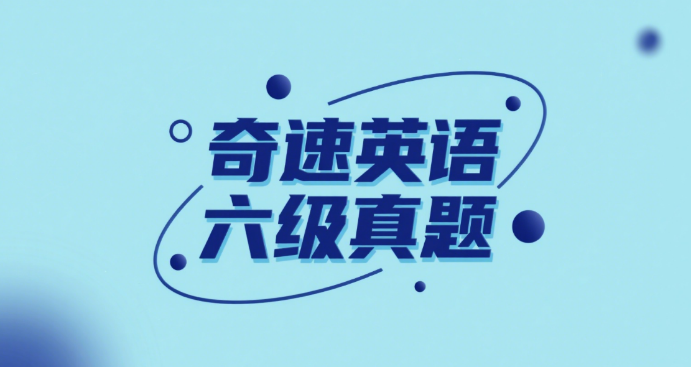
① When someone asks us ‘what do you do?’ we nearly always reply with our occupation. Work, for many of us, is much more than a job. It is the defining aspect of our identity. For many of us it is through our job that we can define ourselves.
② “Without my job I don’t know who I am,” is a sentence that has been uttered on more than a handful of occasions from my office chair. Indeed, it can be one of the most challenging aspects I work on with clients who have lost or been forced into changing their jobs. This loss provokes an identity crisis much greater than the loss of the job itself.
③ One of the things I have come to understand, however, is that our identity is much more complex than we recognise at first glance. If we take the time to reflect we might recognise that as well as our work we can also identify as a friend, a spouse, a son or daughter, a parent, a member of a sports team or religious community. We may recognise that we feel and act differently in these roles and relationships than we do at work. The passive daughter becomes an assertive leader at work. Furthermore, our identities at work are not static. They change over time. I myself have been a shop assistant, a waitress, a student, a graduate, and a clinical psychologist. At each stage my ability to adapt to and develop my career identity has been crucial to my wellbeing. Whilst we like to eliminate uncertainty in our lives at some level we have to manage uncertainty, especially in today’s volatile and ever-shifting job market.
1.1.What do we learn from the passage about one’s loss of a job?
A It compels them to visit a clinical psychologist.
B It offers them a chance to play different roles.
C It renders them puzzled about who they are.
D It forces them to redefine their life’s goals.
解析:选C。C 细节理解题。第二段先介绍作者的个人经历,再得出经验总结。结合首段可知,人们失去工作就等同于失去了自己的身份定义,失业者不知道该如何定义自己是谁,为此感到迷茫、困惑。因此,C项正确。[排除干扰]A 项利用第二段所述“失业者来找作者咨询”干扰,但这仅仅是作者个人经历的阐述,且选项中compels体现的强制性在文中无据可依。B项利用第三段②句“除了工作,我们还能拥有许多身份/担任许多角色”干扰,但该句意在说明“我们在拥有工作者这一身份的同时也能拥有其他身份”,即并非如选项所述“需要失业才有机会担任其他角色”。D项基于首两段所述过度推断出“失业者会重新定义/确立自己的人生目标”文中并未提及。
2.2.What has the author come to understand about our identity?
A It is crucial to our emotional wellbeing.
B It plays a big role in many facets of life.
C It reflects our changing status in society.
D It is more complicated than it appears.
解析:选D。D 细节理解题。第三段①句指出,作者逐渐认识到“我们的身份比我们乍看之下认为的要复杂得多”,D项是对①句的同义改写,故正确。[排除干扰]A 项对第三段⑧句的 crucial to my wellbeing 断章取义,结合完整句意可知,对作者健康至关重要的是“适应与发展职业身份的能力”,而非题干所问的“身份”。B项利用第三段③句的roles 干扰,但句中these roles 实则回指②句提及的“朋友、伴侣、儿女、父母”等不同角色,而非指向“身份在生活中发挥的作用”。C项利用第三段⑥句的 change 干扰,但句中该词指向“工作身份/职业”而非“社会地位”的变化。
3.3.What does the passage say about our identities at work?
A They are essential to our self-esteem.
B They evolve with the passage of time.
C They overrule all other self-perceptions.
D They are key to understanding ourselves.
解析:选B。B 推理判断题。第三段⑤句指出,我们在工作中的身份并非一成不变:⑥句进一步指出,它们会随时间的推移而变化:⑦句以作者的个人经历为例说明工作身份如何随时间推移而变化。B项准确对应此部分信息,故正确。[排除干扰]A、D两项将第三段⑧句所述“适应与发展职业身份的能力对健康至关重要”窜改为“工作身份对自尊/自我认知至关重要”,且D项还将第四段①句所述“自我认知是身份问题的核心/关键”窜改为“工作身份是自我认知的关键”。C项将第三段③句所述工作中的身份与其他身份之间的关系由“二者有所区别(differently)”窜改为“前者支配后者/凌驾于后者之上”。
4.4.What do we have to do in today’s ever-changing job market?
A Strive to develop our social identity.
B Prepare for different career paths.
C Try to be assertive at all times.
D Learn to manage uncertainty.
解析:选D。D 推理判断题。第三段末句指出,虽然我们希望在一定程度上消除生活中的不确定性,但我们不得不去应对不确定性,尤其是在如今动荡不安、变化无常的就业市场中。换言之,如今瞬息万变的就业市场意味着我们在工作和生活中势必会遇到意外变化,我们需要提升适应变化、应对不确定性的能力。因此,D项正确。[排除干扰]A 项将第三段⑧句所述“发展职业身份”窜改为“发展社会身份”。B项利用第三段⑦句提及的多个职业设置干扰,但作者在文中提及个人职业经历仅意在论证“工作身份会随时间而变化”这一客观结果,并非建议人们要主动准备好转换职业道路。C项利用第三段④句的 assertive 干扰,但该句意在论证③句所述“工作中的自己与担任其他角色的自己在行为上有所不同”,与应对就业市场变化的建议无关。
5.5.What should we do to expand our career options?
A Alter our perceptions of ourselves.
B Compare various job opportunities.
C Look into newly emerging sectors.
D Exercise self-discipline consciously.
解析:选A。A 细节理解题。第四段⑥句指出,在一个职业变动可能引领我们进入新领域的时代,越发有必要质疑我们对自己的感知,探索是否可以通过改变对自己的信念来创造新的身份体验,以便拓宽职业选择。换言之,要拓宽职业选择,需要我们质疑固有的自我认知,尝试改变对自己的信念/看法。故A项正确。[排除干扰]B项结合第四段③句的 job change 和惯常思维臆断出“换工作时需要比较各种工作机会”,文中并未提及。C项利用⑥句的 new sectors 干扰,但此部分在该句意在说明“人们可能会随着个人事业的发展/职业的变动而涉足新领域”这一时代特征,与拓宽职业选择的建议无关。D项利用⑤句的 conscious self-discipline干扰,但由句意可知,“有意识的自律”是实现“改变自己的信念、行为和情感体验”这一目标的方式而非题干所问“拓宽职业选择”的方式。